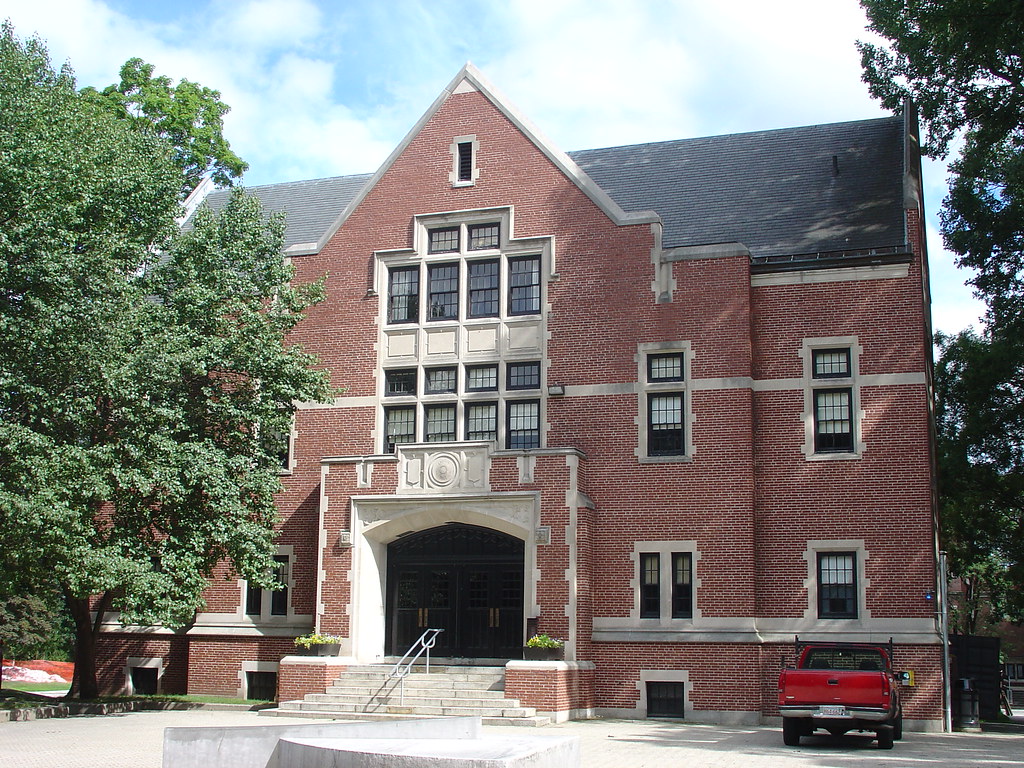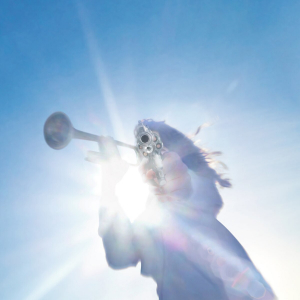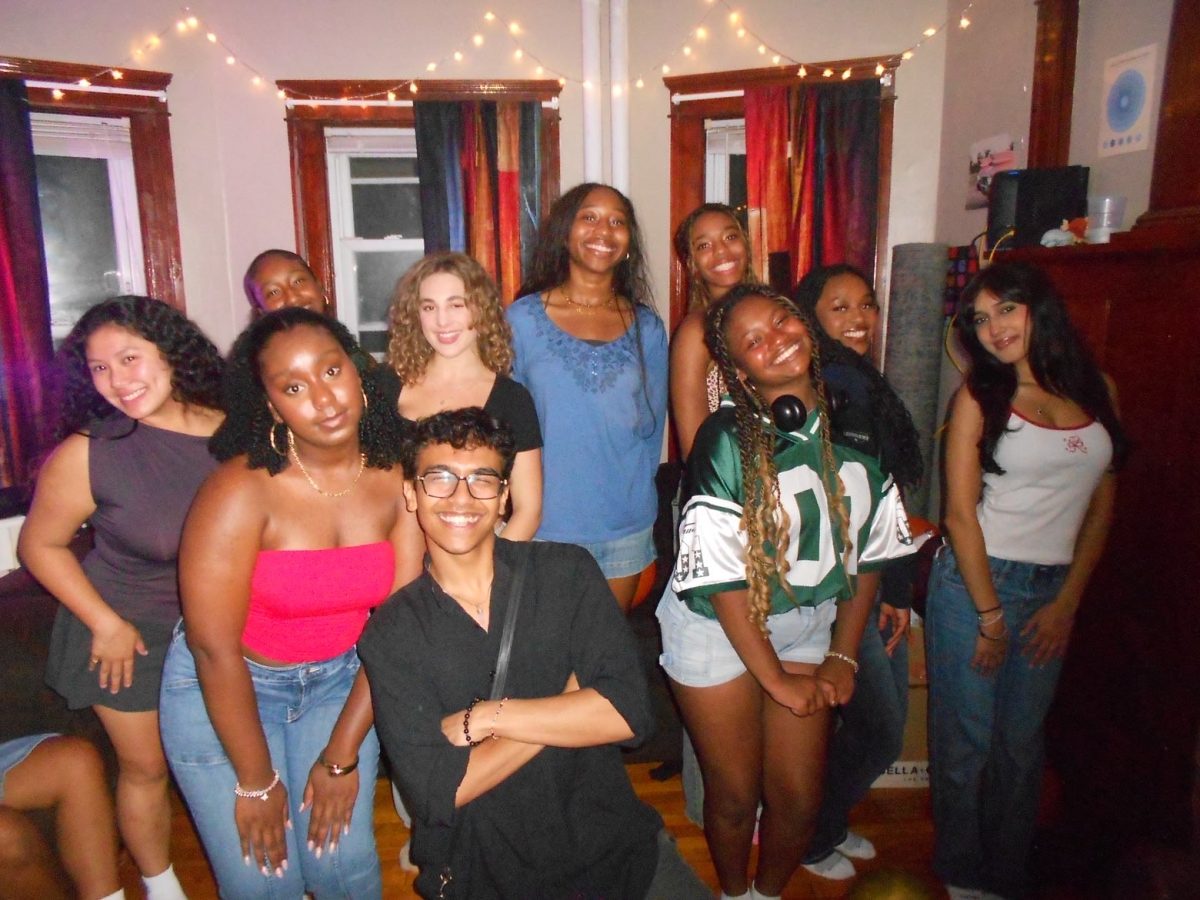Every fall, Clark Musical Theatre produces a shadow production of Rocky Horror in partnership with the Clark University Film Screening Society. However, issues within Clark Musical Theater’s (CMT) leadership has made this show increasingly more difficult to put on.
The Rocky Horror Picture Show has, throughout its existence, been associated with and connected to queer culture. At the time of the movie’s release, it was seen as incredibly progressive with explicitly queer characters and themes. This, along with the fact the movie was released near the time of the Stonewall riots, made it important within many American queer communities. Originally, many would come to midnight screenings of Rocky Horror and dress up, staging impromptu live shows in front of the screen. As time went on it became more popular to do larger shadow cast productions with the entire show organized and performed. This is the type of show CMT puts on every year.
CMT has performed the shadow cast version of Rocky Horror for many years during Halloween week as both a celebration of queer culture and as a light show before their full scale musical later in the fall semester. Historically, they have partnered with the Clark University Film Screening Society (CUFSS) to provide the screening aspects, while CMT provides the performance aspects such as actors, tech, and the director.
But recent issues within CMT’s leadership have made putting on Rocky Horror difficult for the club. In 2021, CMT cut ties with Clark’s Theater Arts Department due to racist remarks from Gino DiIorio, the department head. CMT’s direct relationship with the university offered it extra resources that only the department could provide, like additional funding and specialized tech equipment.
Flawed Internal Governance Facilitates Corruption
Internal struggles at CMT have also caused difficulties in putting on productions in the last few years. In 2020, the club had to cancel both their spring and fall shows due to the pandemic, and in 2021, the spring production was canceled after switching from “Rent” to “Fun Home” due to the aforementioned break between CMT and the department. Finally, in the 2021-22 academic year, CMT was able to get back to full scale productions with “The Addams Family” and “Company.” However, for the fall ‘22 semester, CMT once again faced production issues, causing them to cancel their main show and stage a cabaret instead.
All of these failures showcase a common theme of CMT not being able to provide the shows they promise to their club members as well as a lack of organization within the club’s leadership.
Perhaps the biggest issues with putting on Rocky Horror this year stem from the events of last year’s show. In order to get a better understanding of what took place, I talked to Ellie Zarrow and Meridian Stiller. Both were Rocky Horror cast members in fall 2022. The issues began when the directing team first realized that, with the increased number of freshmen in the show, some of the roles may have minors playing them. This would be a major issue because of the sexual nature of the show. This could have been prevented by the CMT executive board who, during cast contracts, could have ensured that their cast members were not minors, or prevented them from engaging in sexual scenes with acting partners over the age of 18. The problem could have also been attributed to internal rules at Clark preventing age discrimination. Still, at the very least, CMT could have gotten cast members’ ages to ensure they weren’t playing the more overtly sexual characters, or appearing in any inappropriate dances or roles.
By the time the team figured out this could be an issue, they decided it was too late to do anything – they believed that if the director found out, the actors would have to lose their roles, according to then-cast member Ellie Zarrow. This actively gave the actors a reason to lie about their age, putting them “in an impossible situation – it is a glaring oversight,” said Zarrow. Additionally, many of the intimacy workshops and safeguards that were in place for the 2021 show were no longer in place for the 2022 rehearsal process. As Zarrow tells me, during the rehearsals for the 2021 show, there were constant discussions and “intimacy workshops” for cast members. This, however, was nonexistent during the 2022 show despite the fact it was the same director in charge.
The largest issue from last year’s Rocky production, however, were the events that took place on the Thursday night of tech rehearsal, just two days before opening night. One of the actors wasn’t feeling great and went home early. This actor was involved in a sexual scene that involved both touching and intimacy between two characters. Two of the stage managers began taking turns filling in for the lost actor. However, neither stage manager wanted to perform the sex scene and planned on skipping it or just standing in place to indicate that it was happening. The director, at this point, went on stage and performed the sex scene without the consent of the other actor prior to getting on the stage. Nobody was informed that the director was taking over for the part, including the two stage managers who had both asked the director not to fill in the part, and actively tried to stop them from going onstage. After that day, the director was no longer allowed into the rehearsal space and multiple members of the club had to stop them from coming to the shows.
The issues with last year’s show stem from major flaws within the club’s leadership and production structure. The director of Rocky Horror was also CMT’s president at the time, giving them a massive amount of power within the group that limited outside input and feedback.
If the president had been a different person, CMT’s board would have had much more power to hold the director accountable. The director was instead able to abuse their power within the group to get what they wanted – dramatically culminating in the tech rehearsal incident.
The way CMT’s charter is structured causes these issues. As the charter states, “The President shall be ultimately responsible for all hiring and firing decisions, as well as contacting all applicants to said positions.” This empowers the club president to give themselves, their friends, or anyone else they’d like the opportunity to be in a creative position with minimal pushback from the rest of the CMT board. If a president truly cares about the group, they will create these power separations themselves. But as we saw with last year’s production, we cannot trust a president to do this, no matter who they are.
After last year’s production, CMT held a brief post mortem discussion. While all of the cast was invited, only two cast members showed up (one of whom was Zarrow). CMT’s executive board – including the president, and two stage managers – hosted the discussion, along with club advisor Kevin McGerigle.
In this discussion, Zarrow brought up how she was appalled by the lack of separation between the roles of president and director. Zarrow said the then-president “argued with me for 20 minutes over it because she wanted to be the director.”
This situation demonstrates the massive potential for corruption on the part of the executive board that the charter enables. It also shows that one of the best ways to become a director is to try and become president of CMT. There is effectively no separation of power. Because of these structural flaws, any production could be plagued by problems – not just Rocky Horror.
A Theatrical Nightmare
So that brings us to this year’s Rocky Horror show. Earlier in the year, CMT sent a message to many performance clubs on campus, informing them that the club was interested in running a joint production of Rocky Horror. Most simply, the pitch was that each group would be assigned a brief scene or part of the show where they would perform.
On paper, this idea sounds like a fun way to showcase different on-campus groups. However, even at just a second glance, this becomes a logistical and theatrical nightmare.
First off, many of the groups that CMT contacted have little or no connection to the source material or experience in this kind of performance. For instance, Shenanigans, the improv group, was invited to perform. While improv is under the umbrella of performing art, the group as a whole has no connection to musical theater or to Rocky Horror.
Inviting other clubs to participate also opened CMT up to the problem of “peer pressure” within those groups. A member of Shenanigans I spoke with, for example, was concerned that they would essentially be “required” to perform if their group took CMT’s offer because of how small the improv troupe is.
Rocky Horror is an inherently sexual show, and is often performed scantily-clad. CMT’s production last year used dildos and other sex toys as key props. While the show can be sexually liberating to both performers and the audience, many individuals from these clubs may not feel comfortable performing in the show. This contributed to CMT’s peer pressure problem, too.
Moreover, including many clubs from around campus would quickly become a technical disaster. Organizing that many groups to rehearse – let alone show up and perform – would be very difficult, and it would become increasingly difficult as the number of groups involved grows. And consider wardrobe: in the original pitch for this show, the parts are split up between the different groups. Wouldn’t this mean that each group would need their own variation of every costume?
This would also confuse the audience. Constantly switching actors for each character would make the show difficult to focus on and understand. I also wonder about how well the scene transitions would go. As a shadow cast, the movie plays while the actors perform what’s on screen, but with having to change characters, would this require the movie to be paused in order for the transition to happen?
Even if the groups were mixed together, utilizing this club method still makes little sense. While this idea could be fine with some shows, it makes little sense with a cult classic like Rocky Horror, especially with its significance to the queer community. Most importantly, this would require each club to direct their own sections, creating a confusing mess of quality throughout the production.
While we have no way to know whether this idea was created to try and circumvent the kind of power balance problems with last year’s production, this arguably worsened many of the problems from last year’s show. Now, there is no type of centralized director. Instead, many different groups with their own internal rules and cultures will have to find a way to collaborate – and what if their rules are flawed, too? That would give CMT even less control over issues of consent, for example – and they’d still be responsible for it.
This was a real concern. Many of the groups invited to perform in Rocky have even fewer safeguards in place to protect from power abuse; in some cases, there may not be a traditional “director” at all, in the case of acapella groups. Additionally, intimacy coordination would be harder to run because, for the most part, each group would be expected to run those conversations themselves. Even if CMT was to run production-wide discussions, because of the sheer number of groups involved it would be impossible for everyone to be involved in these necessary intimacy talks.
Thankfully, this idea was ultimately scrapped due to a lack of campus-wide interest. The production ultimately shifted back to being CMT-centered, and based on sign-ups.
I reached out directly to CMT to learn more about their most recent vision for the production. “This year, Rocky Horror is intended to be a largely collaborative process,” they replied. “We are putting out a list of scenes in the show and anyone will be welcome to sign up to perform a scene in the shadowcast. The hope is to return to the more improvisational roots of shadowcast productions, as well as allowing a wider range of participation, while still sticking to the Rocky Horror traditions that Clarkies know and love.”
While this idea is better than the original idea for this year’s Rocky Horror, it still confuses me. With little rehearsal time, it seems more effective to either give up the shadow cast entirely or just do the way Rocky Horror’s shadowcast was originally meant to be done, rather than paying homage to it. Doing Rocky with improv in this way after the events of last year seems again like a poor idea because there’s even less of a way to moderate content, check for the ages of cast members, and ensure everyone is getting consent for their actions onstage. It’s yet to be seen whether there’s an interest for doing Rocky in this way. Either way, it’s clear this is a hastily put together effort by CMT to save Clark’s Rocky Horror tradition.
The future of Rocky Horror at Clark remains unclear. With terrible events taking place during recent productions as well as poorly put together ideas on the part of CMT, it is yet to be seen if Rocky will be able to recapture the spirit of doing the cult classic should. During our interview, Ellie Zarrow expressed that CMT should stop putting on Rocky Horror in their current state. And I agree. Until CMT can properly put together a safe environment for everyone involved, create a fair separation of power where the director isn’t part of the executive board, and during this put on a show that people can still enjoy and be proud of being a part of they should stop running Rocky for the time being.



